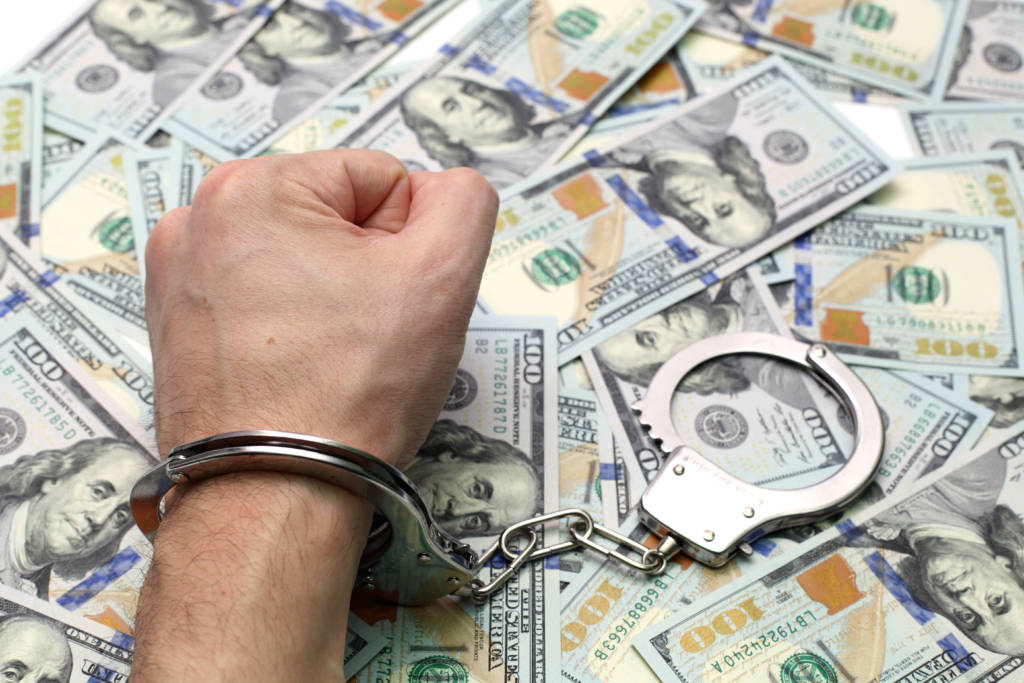Last August, we published, “Money Bail: The pro-rich, anti-everyone-else “tax” on the accused.” which followed a post in 2016 titled, “Money bail: Another foible of the Gaps“
The thrust of both posts was the money bail for criminal accusations is an example of bigotry, primarily against people of color, but more generally, against the poor and middle-income groups.
Today, we see another example:
Bond raised to $1M in Floyd’s death
By Steve Karnowski Associated PressMINNEAPOLIS — A judge on Monday set $1 million bail for a Minneapolis police officer charged with second-degree murder in George Floyd’s death.
Derek Chauvin, 44, said almost nothing during an 11-minute hearing in which he appeared before Hennepin County Judge Denise Reilly on closed-circuit television from the state’s maximum security prison in Oak Park Heights.
His attorney, Eric Nelson, did not contest the bail — raised from the $500,000 initially set in the case — and didn’t address the substance of the charges, which also include third-degree murder and second-degree manslaughter.
The ostensible purpose of a money bail bond is to assure the accused will return for trial. The money supposedly provides an incentive for appearance. And presumably, if he does appear, the money the money would be returned.
Using that as a rationale, explain why the $500,000 bond was increased to $1 million, and later to $1.2 million.
The answer is that the judge considered Chauvin to be a flight risk, and so probably:
- Will be unable to raise that much money or
- Will be loathe to skip out on that much money.
- If a bondsman is used, he will act as a bounty hunter, assisting in the capture of a fleeing felon.
If #1, then clearly the judge wanted to keep Chauvin in jail, so he made the bond so high that in his opinion, no police officer could raise that much.
But why? Is Chauvin a flight risk? Is he a danger to the community? If so, the more rational alternative would have been just to deny bail, which judges do all the time.
Why make it dependent on ability to pay? Does raising it from $500 thousand to $1 million make him less of a flight risk? Does it make him less a danger?
If #2, the reality is that the money will not be returned, at least in its entirety. The average person cannot raise that amount from family and friends, so he will use a bondsman. But before bond money is returned, the bondsman will deduct certain fees, beginning with a 10%-15% fee.
Additionally, there may be more fees you probably never heard of:
Travel Fee
Credit Card Processing Fee
Change of Indemnitor / Co-signer Fee
Cancellation Fee
Failure to Appear (FTA) Fee
Court Appearance Fee
Finance Fee
Check-In Fee
Electronic Monitoring Fee
Forfeiture & Bail Enforcement Fee
There is a difference between “bail” and “bond,” but for the purposes of this post, we’ll treat them the same. The actual amount of bail depends on the judge and on state law.
Theoretically, bail has a merciful aspect. Trials can take a long time, and if the accused is found innocent, he will not have spent time in jail for a crime he did not commit. But, as we have shown, the full amount of bail never is returned.
A bondsman might keep some. The jurisdiction might keep some. A $1 million bond might result in only a half million returned, if that.
If #3 above, the opportunity for uncontrolled, untrained, ruthless bounty hunters should be considered obsolete, a relic of the lawless West.
All of the above indicate weaknesses in the bail system, but the real weakness is it is so manifestly unfair.
While judges supposedly take “ability-to-pay” into consideration, the reality is that the very wealthy rarely are unable to make whatever bail is authorized, while the poor seldom are.
More importantly, bail is a punishment without trial, not for having committed a crime, but rather for having been accused of committing a crime.
An accused suffers plenty of punishment, even without bail. He is arrested, must go before a judge, often must pay for an attorney, often must spend some time in jail, and there is the public humiliation.
To additionally impose the costs of bail seems to violate all norms of fairness, especially for an innocent accused.
Our justice system has no answer for that. Under any legal system, merely being accused imparts some measure of punishment. But for the innocent, it is a nightmare.
It could happen to you. It could happen to me. So at the very least, we should seek ways to prevent the innocent from being unduly punished.
I disagree with the entire bail concept. A person should be kept in jail for only two reasons: If he is a real flight risk and/or a danger to the community.
In both cases, he merely should be kept in jail, rather than the rich being allowed to post bond while the poor languish.
The American system of “innocent-until-proven-guilty” should preclude bail, for bail too-often constitutes punishment of the innocent.

The “innocent-until-proven-guilty” concept also extends to wealth. Are people who can afford bail more innocent than people who cannot?
America officially (though not actually) has rid itself of the horrible debtors’ prisons.
America also should have rid itself of bail, for exactly the same reasons.
Rodger Malcolm Mitchell
Monetary Sovereignty Twitter: @rodgermitchell Search #monetarysovereignty Facebook: Rodger Malcolm Mitchell …………………………………………………………………………………………………………………………………………………………………………………………………………………………………………………………………………………………..
THE SOLE PURPOSE OF GOVERNMENT IS TO IMPROVE AND PROTECT THE LIVES OF THE PEOPLE.
The most important problems in economics involve:
- Monetary Sovereignty describes money creation and destruction.
- Gap Psychology describes the common desire to distance oneself from those “below” in any socio-economic ranking, and to come nearer those “above.” The socio-economic distance is referred to as “The Gap.”
Wide Gaps negatively affect poverty, health and longevity, education, housing, law and crime, war, leadership, ownership, bigotry, supply and demand, taxation, GDP, international relations, scientific advancement, the environment, human motivation and well-being, and virtually every other issue in economics. Implementation of Monetary Sovereignty and The Ten Steps To Prosperity can grow the economy and narrow the Gaps:
Ten Steps To Prosperity:
2. Federally funded Medicare — parts A, B & D, plus long-term care — for everyone
3. Social Security for all or a reverse income tax
4. Free education (including post-grad) for everyone
5. Salary for attending school
6. Eliminate federal taxes on business
7. Increase the standard income tax deduction, annually.
8. Tax the very rich (the “.1%”) more, with higher progressive tax rates on all forms of income.
9. Federal ownership of all banks
10.Increase federal spending on the myriad initiatives that benefit America’s 99.9%
The Ten Steps will grow the economy and narrow the income/wealth/power Gap between the rich and the rest.
MONETARY SOVEREIGNTY
This is a good way to really test and improve ankle bracelets. The bondsmen, meanwhile, can put their money in ankle bracelets stocks to make up for lost business. I wouldn’t feel sorry for them if they still lost money.
LikeLike
Good thought.
LikeLike